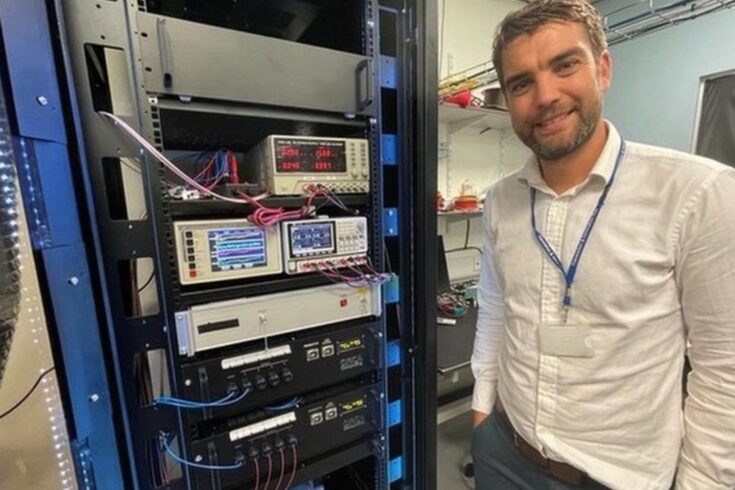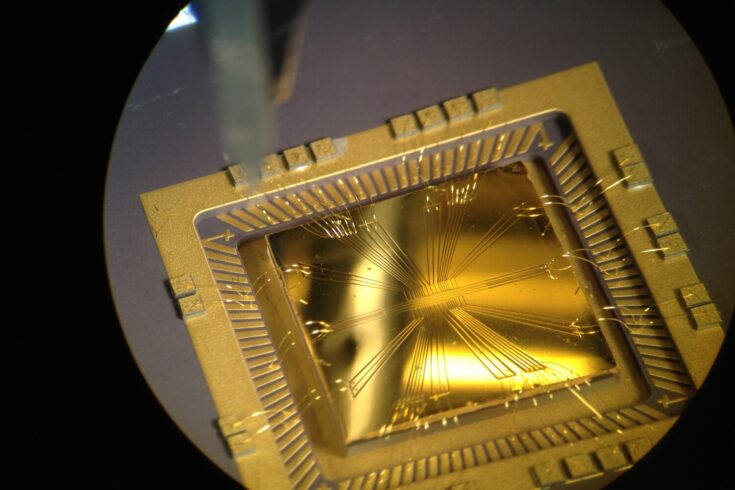Exploiting the potential of quantum science
The UK National Quantum Technologies Programme was established in 2015. It is delivered by the Engineering and Physical Sciences Research Council (EPSRC), Innovate UK and Science and Technology Facilities Council (STFC) in partnership with the Defence Science and Technology Laboratory, the National Cyber Security Centre and the National Physical Laboratory (NPL).
The aim of the programme is to exploit the potential of quantum and develop a range of emerging technologies which could create opportunities for wealth creation in the UK. Currently, the global quantum computing market’s future is estimated to be worth US$10 billion within the next five years.
A number of technologies are being developed in partnership with existing businesses, but for many potential opportunities there is no existing industrial base because the concepts and science involved are so revolutionary.
In these cases, it makes sense to exploit the technology via spin-out companies. Nine spin-out companies associated with the University of Oxford led Quantum Computing & Simulation Hub (QCS Hub) and its forerunner the Networked Quantum Information Technologies (NQIT) Hub, funded by EPSRC, have already been formed.
Building a UK quantum computing industry
These new businesses include those focused on:
- building actual quantum computers to deliver quantum computer power as a service in itself
- using quantum technology to unlock untapped potential within existing silicon computing hardware and quantum enabled services
- significantly enhancing existing needs such as in encryption or sensors
Together these fast-growing businesses have raised over £39 million in investment and employ over 100 people in highly qualified, cutting edge scientific technical roles in the UK. They are turning world-leading quantum science into a large and vibrant new market full of opportunities for high-tech UK businesses.
From innovative research to marketplace
ORCA Computing
University of Oxford spin-out ORCA Computing was founded in 2019 to bring to market research from the NQIT Hub.
The company is based on the long-term EPSRC-funded research of Professor Ian Walmsley, ORCA co-founder and chairman, and co-founder and Chief Scientific Officer Professor Joshua Nunn’s NQIT research.
ORCA is building the world’s first quantum computing platform based on optical fibre and uses telecommunications components for the first time.
Key in enabling progress
Co-founder and CEO Richard Murphy is complementary about the impact of the national programme:
Without the well thought-through national programme and the NQIT managed funding in particular, ORCA Computing and our unique approach to enable quantum computing on a shoestring using photonics techniques would not exist.
The ability to conduct quantum computing cheaply and reliably is key to enable progress in other technologies such as AI, which is increasingly a major consumer of energy with its undesirable environmental impacts.
The approach is unique to the UK, created by necessity given our relatively smaller investment abilities, but one which is likely to lead the world in the next few years. It is thanks to the national programme drawing the key people and ideas together that the UK is now at a critical point where it really could lead the world and establish a significant homegrown industry.

ORCA CEO Richard Murray with quantum device Credit: ORCA Computing
ORCA recently completed a US$15 million funding round that will support its plans to roll out near-term photonic quantum computing systems and software, which will enable organisations to develop future data processing capabilities such as machine learning.
As a research and manufacturing company, ORCA also supports a large, high tech supply chain, which supports further high skilled jobs and research and development investment throughout the supply chain. The company’s quick success was recognised with the Institute of Physics start-up of the year award 2020.
Universal Quantum
Also founded in 2019 to commercialise EPSRC-funded research by Professor Winfried Hensinger, is spin-out Universal Quantum. As part of NQIT’s early activities, Professor Hensinger’s University of Sussex research group authored the first blueprint of how to build practical quantum computers with trapped ions.
The researchers have gone on to achieve a milestone of successfully transporting qubits, the basic calculating units in a quantum computer, from one quantum computing microchip module to another with unprecedented speed and precision. This allows chips to slot together like a jigsaw puzzle to make a quantum computer far more powerful than today’s advanced supercomputers. The development is being turned into practical action by the company.
In 2022 Universal Quantum received an order of €67 million from the German Aerospace Centre to build two quantum computers.
Quantum Motion
Spin-out Quantum Motion was founded by long-time EPSRC supported Professor John Morton at University College London and Professor Simon Benjamin of Oxford University.
The company is developing a revolutionary technology platform that includes a scalable array of qubits based on the silicon technology already used in smartphones and computers. Engineers are developing quantum computer architectures that are compatible with standard silicon processing, unlocking the power of quantum computing with the simplicity of silicon.
By creating a scalable quantum computing technology, the company will be able to tackle currently intractable problems in fields as diverse as chemistry, medicine and artificial intelligence. Earlier this year, Quantum Motion achieved equity funding of over £42 million from some of the world’s leading quantum and technology investors, including the Sony Innovation Fund.
These are just three of the spin-out companies that have contributed within a few short years to the beginnings of a unique, high-tech, high value adding, cutting-edge industry within the UK. They are good enough to rival and possibly lead the world in the application of quantum computing.

